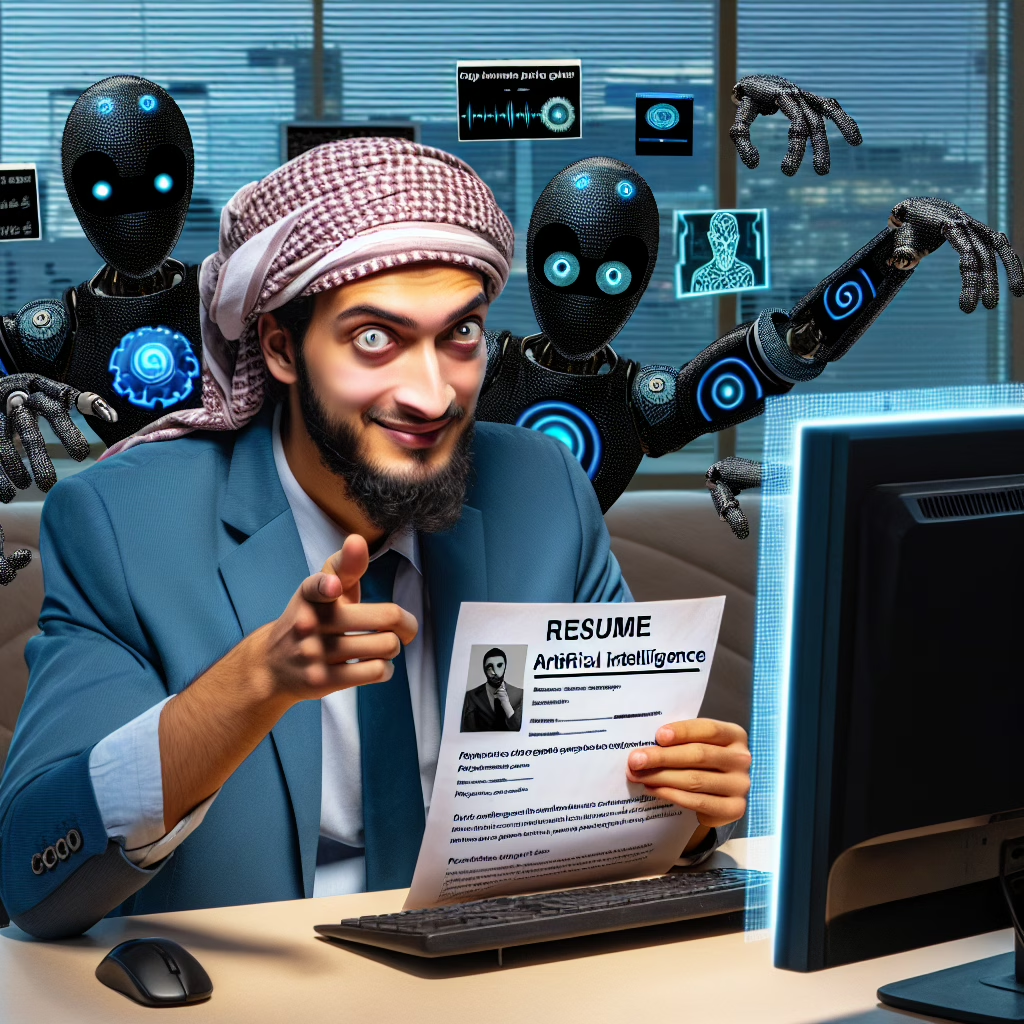In a world where job hunting can feel like a high-stakes game of musical chairs, it seems even North Korean hackers are getting in on the action! Yes, you heard that right. These cyber sleuths have taken their talents beyond the confines of their homeland and are now using advanced AI tools to help them secure positions at Western firms. If you thought job applications were tough, imagine doing it while juggling fireballs of international intrigue!
AI: The New Wingman for Cybercriminals
Imagine this: you’re a North Korean hacker, and your skills in breaking into systems are top-notch. But how do you convince a Western company to hire you? Enter artificial intelligence, your new best friend (or should we say partner in crime?). According to cybersecurity experts, these hackers have started employing sophisticated AI-driven tools to improve their resumes and create convincing online personas.
Now, let’s pause for a moment. When did applying for a job become an Olympic sport? But alas, with the rise of AI in recruitment processes, it seems that even the most dubious characters are getting crafty with their applications. They’re not just throwing darts at a board anymore; they’re using precision targeting to land those coveted roles.
The Job Market: A Playground for Cyber Intrigue
The job market is evolving faster than a cat meme going viral. With companies increasingly relying on digital platforms for recruitment, hackers can now disguise themselves as legitimate candidates. This brings us to the question: how does one distinguish between a genuine applicant and a cybercriminal in disguise?
It’s like trying to find Waldo in a sea of striped shirts! Advanced AI tools can craft resumes that would make even the most seasoned HR professional do a double-take. These documents are filled with buzzwords and polished achievements that scream “hire me!” Meanwhile, behind the scenes, the individual may have been honing their hacking skills instead of their teamwork abilities.
How They Do It: The Tech Behind the Trickery
Thanks to machine learning algorithms and natural language processing, these hackers can generate realistic cover letters and CVs. They analyze successful job applications and replicate the style and tone that companies find appealing. It’s like having an AI coach whispering sweet nothings into their ears about what employers want to see.
This method raises serious concerns about cybersecurity within organizations. Imagine welcoming someone into your team only to discover they’ve been trained by a government known for its cyber warfare tactics! It’s like inviting a wolf into your sheep pen while thinking it’s just an overly friendly dog.
The Ripple Effect on Recruitment Processes
The impact of these tactics extends beyond individual companies; it could shake up recruitment processes on a global scale! As organizations strive to enhance their security measures, they might find themselves navigating uncharted waters. A surge in sophisticated AI-generated applications could lead to more rigorous background checks and enhanced verification processes.
Companies may need to invest in advanced AI tools themselves—tools designed not only for hiring but also for sifting through potential applicants with the precision of a ninja. After all, if hackers are using AI as their secret weapon, businesses should arm themselves accordingly!
Staying Ahead: What Can Companies Do?
So what’s the takeaway here for companies? First off, don’t panic! While North Korean hackers using AI tools is certainly alarming, there are steps organizations can take to protect themselves:
- Enhance Background Checks: Tightening verification processes can help weed out less-than-ideal candidates.
- Invest in AI Detection Tools: Consider using AI-driven software that can identify fraudulent applications based on patterns and anomalies.
- Promote Cybersecurity Awareness: Train HR personnel to recognize signs of suspicious activity during recruitment.
By implementing these strategies, companies can maintain their integrity while still reaping the benefits of hiring top talent—minus the potential cyber threats!
The Future: Opportunities and Challenges
The rise of North Korean hackers utilizing advanced AI tools poses unique challenges but also opens up discussions about how technology shapes our workforce. With every challenge comes an opportunity for growth—and that includes finding innovative ways to protect our businesses from external threats.
As we look towards the future, let’s embrace technology’s potential while remaining vigilant about its pitfalls. Remember, just because someone’s resume looks shiny doesn’t mean they’re not hiding something sinister behind that polished exterior!
What do you think about this new trend? Are we ready for a world where even hackers are vying for positions in our offices? Share your thoughts in the comments below!
And before we go, a big thank you to TechRadar for shedding light on this fascinating topic!

